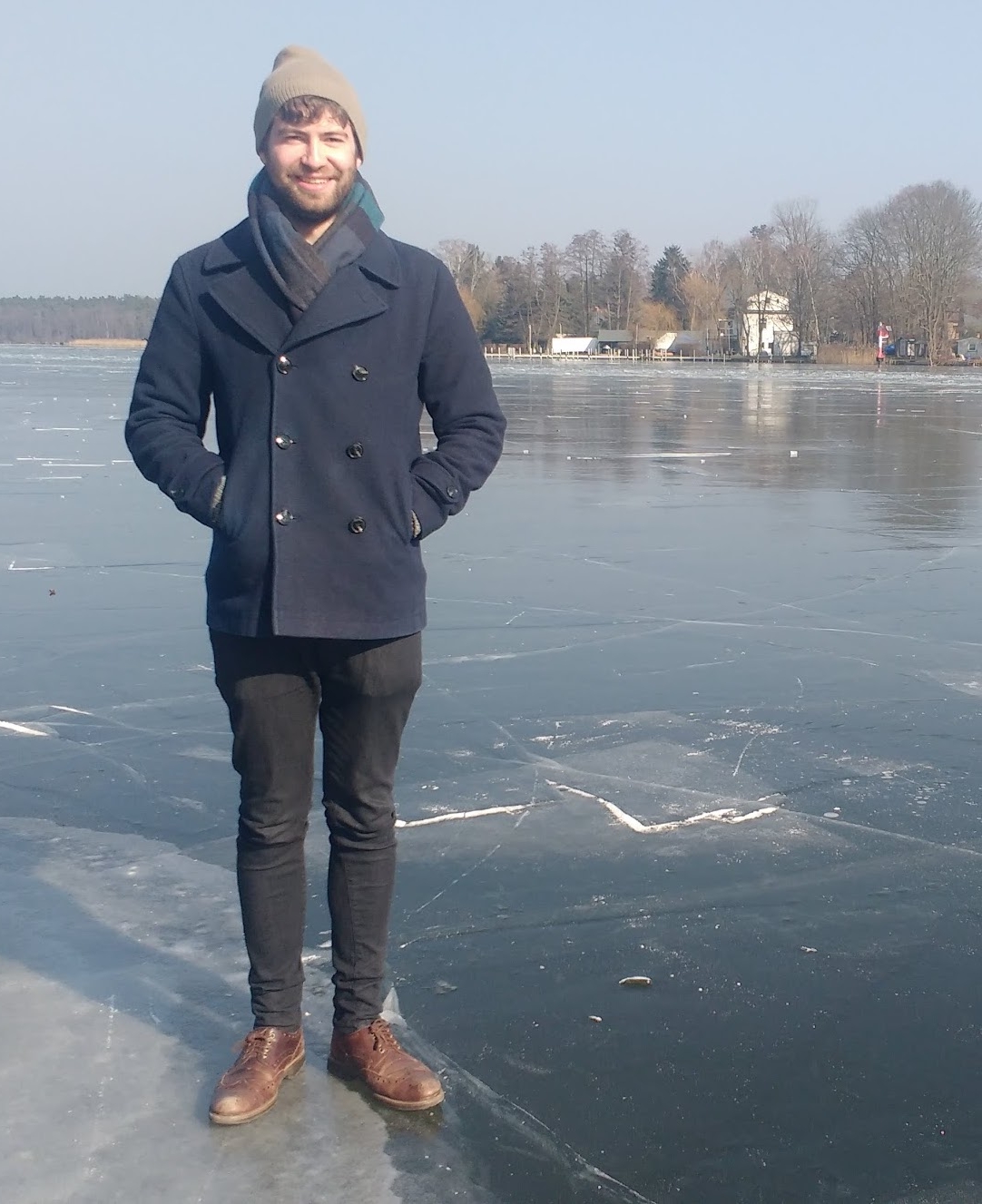ZTF Faces
This section features PhD students, postdocs and young faculty who are part of the global ZTF collaboration.
Robert Stein
PhD student at DESY, Germany
Your starting point and landing in the land of astronomy...
I‘m from the UK, and grew up in London. I also studied there, completing my undergraduate physics degree at Imperial College London. For my Master’s thesis, I took part in an academic exchange to the University of Hamburg, working there on cosmic ray detection with Imaging Air Cherenkov Telescopes. After finishing my degree in 2017, I decided to double down on cities with bad weather, and started my PhD at DESY Zeuthen in Berlin. Since then I’ve been working with ZTF and the IceCube neutrino observatory. Right now I am writing up my thesis.
My route to astronomy was a little unconventional, since I started out with more of an interest in particle physics. My master’s thesis work provided my first introduction to astroparticle physics, a field which neatly connects particle physics and astrophysics. With my PhD, I’ve now moved to multi-messenger astronomy, combining data from different “cosmic messengers” (photons, neutrinos, cosmic rays and gravitational waves).
What are you playing with in the ZTF playground?
My work in ZTF is primarily related to this topic, searching for optical counterparts to both neutrinos and gravitational wave events. Optical data provides an excellent window to the time-varying universe, particularly ZTF with its high cadence public survey, so it’s the perfect tool to help us identify neutrino emission from astronomical transients. At DESY we run the ZTF neutrino follow-up program, in which we use the telescope to observe the arrival direction of high-energy neutrinos reported by IceCube. We then analyse the data, and try to find possible neutrino sources.
On that front we recently had an exciting result, because we were able to identify a tidal disruption event (TDE) as the probable source of a high-energy neutrino ( Stein et al.). Though TDEs had previously been suggested as possible sources of neutrinos and cosmic rays, this is the first observational evidence to support that claim. The origin of cosmic neutrino flux detected by IceCube remains a big open question in astronomy, and our result suggests that TDEs are one contributing population.
Where do you want to steer your rocket in the future?
For my future career, I want to continue working in multi-messenger astronomy, which is certain to become even more exciting over the next few years as a new generation of neutrino telescopes are built and the LIGO/VIRGO/Kagra gravitational detectors are upgraded. The upcoming Rubin Observatory is also set to be a big step-change for time-domain astronomy. In the less distant future, I am very much excited to move to California this autumn to start a postdoc at Caltech with Prof Mansi Kasliwal. On a more personal level, I am also excited to experience California’s offer of reliable sunny weather, something that has eluded me thus far.
If you were not an astronomer, what would you be?
I was drawn to research partly because I like to analyse and solve problems using data, and that’s one of the things I love about my job. But astronomy is not the only place you can do that! There are also plenty of interesting non-space-related problems to solve, so I think my alternative career would be working somewhere as a data scientist.
A book that shook your worldview?
I’m not sure if any single book really “shook my worldview”, but my favourite book is definitely Catch-22. Reading it is an almost dizzying experience, since it manages to be both a bleak war novel and a very funny absurdist satire.
If you’ve had a bad day at work, you will….
I can’t say that bad days happen very often, but (at least in the pre-pandemic era) the famous German tradition of a “wegbier” (“a beer you have on the way”) with colleagues on the evening train home would usually cheer me up.
